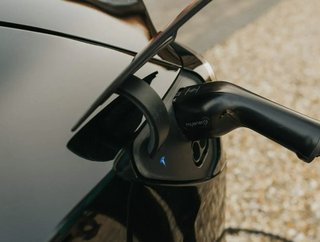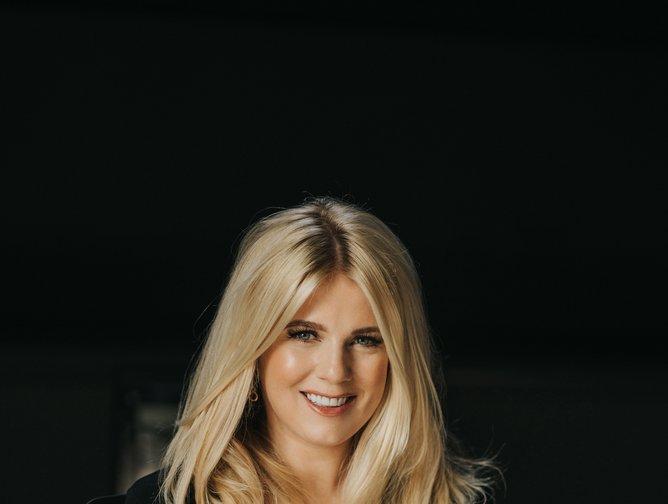Tesla & Octopus lead the energy transition, says myenergi

Founded in 2016, myenergi is on a mission to pioneer a simple transition to renewable energy. Headquartered in the UK, the energy company works to remove the barriers to a greener future, including the technological, behavioural and financial challenges relating to fast adoption of smart energy products.
The company created the first solar compatible EV charger, and has taken the technology on to become multi-award winning and see the company grow on average over 180% annually since 2020.
With partnerships and arrangements with companies including Santander, Direct Line and Cinch, and expansion into Europe underway, myenergi is a serious name in eco-technology.
Co-Founder and Chief Marketing Officer (CMO) Jordan Brompton is committed to creating a kinder, more sustainable future for our planet.
With significant experience in the renewable energy and green technology industries, Brompton is responsible for forging fundamental relationships for myenergi and driving the strategy to fuel international expansion.
Before establishing myenergi, Brompton founded, invested in and worked with a number of leading businesses. Her insights and dedication to the green energy space have been a pivotal part of myenergi’s continued growth.
Always one step ahead, Jordan leads a team who are continuously pushing to innovate and produce effective solutions for the home and workspace. The game-changing technology to come from the incredible talent at myenergi is a testament to how rapidly the adoption of EV’s has grown.
Never one to sit still, she became a published author in 2019 — ‘Sparki and the journey to Earth’ aims to educate children about the importance of working towards a greener future.
“No one can change the world on their own,” Brompton believes. “However, what they can do is inspire the future. At myenergi, we may just be one company, but we’re passionate about driving a global movement – changing the way people think, feel and behave when it comes to sustainability.”

What does the energy transition mean to myenergi?
The energy transition is so much more than just a shift from fossil fuels to renewable sources. It’s about enabling global decarbonisation – all the way from individual households to the highest emitting heavy industries. Globally, we have a responsibility to fight for cleaner air and to protect the future health of our planet and its people.
At myenergi, we’re committed to pioneering a simple transition to domestic renewable energy. As we journey towards a net zero future, it’s vital for consumers to be offered easy and convenient ways to shift away from fossil fuels towards clean energy.
We design our products with a commitment to sustainability and circularity for generations to come. Our intelligent technologies ensure simple and achievable home energy management to accelerate away from grid reliance, and towards the zero-emissions world of tomorrow.
How has legislation helped so far in the energy transition?
There are a few policies that spring to mind regarding the energy transition, starting with the UK’s 2008 Climate Change Act – with Britain the first country in the world to set legally-binding carbon budgets.
Another is Contracts for Difference (CfD), the UK Government’s £227m scheme which backs renewables. Launched in 2014, the scheme supports low-carbon electricity generation and has already contributed to an increase in the proportion of the UK’s energy from renewables.
In the automotive sector, we have seen gradually increasing taxation on more polluting vehicles drive consumers towards cleaner vehicles, with electric vehicles now in the ascendency.
However, the largest and most groundbreaking renewables policy in recent years comes from the USA in the form of the Inflation Reduction Act (IRA). This US$369bn bill is directed at zero-carbon energy projects like solar and wind, providing grants and tax credits to onshore renewables manufacturing, while also offering consumer incentives to purchase electric cars, heat pumps and electric stoves. Personally, I think that the UK and the EU should take lessons from the US during future policy discussions and push for in-continent renewable tech development, manufacture and power generation.
Conversely, how has legislation hindered the energy transition?
We’re not strangers to policies or decisions negatively impacting our energy transition. Earlier this year (June 2023), the Climate Change Committee (CCC) said it had less confidence in the UK’s ability to meet its legally binding emissions goals post-2030, with more and more key industry figures becoming outspoken when it comes to decisions regarding the transition to net-zero.
One of the key policies we’ve commented on recently is the decision to delay the eagerly anticipated 2030 ban on new petrol and diesel car and van sales. Announced in September, the delay not only adds a layer of confusion for consumers, but will also negatively impact the British automotive sector.
Despite changes to the legislation, the automotive industry must continue investing heavily in electric vehicles, as manufacturing targets remain the same. So, instead of the increased EV manufacturing figures being supported with legislation, manufacturers will be producing vehicles that are still competing with petrol and diesel cars.
We seem to be seeing a culture war emerging over ‘green’ issues, which in my view is completely regressive. We should all be working towards the same outcome. A greener future will be better for everyone, not just the better off. Certain personalities and media outlets trying to suggest that the energy transition will harm less well-off families or communities is ridiculous.
What new legislation is driving the transition?
The EU mandate for fast-charging EV stations is a game-changer. Designed to speed up the transition to electric vehicles, while also shrinking the bloc’s carbon footprint, the initiative perfectly aligns with the EU’s commitment to the Paris Climate Agreement. It’s a bold statement from the EU to confront climate change head-on.
I think it’s a significant step forward for eco-friendly mobility, as not only does it increase the prevalence and accessibility of EVs, but it also pushes us closer towards wider sustainability goals.
Also from the EU, lawmakers have recently approved legally-binding targets to accelerate clean energy – requiring 42.5% of EU energy to be renewable by 2030. This is fresh policy and we have yet to see how this will play out, but any new legislation which both encourages and facilitates cost-effective transitions to clean energy is a positive step forward.
We are also seeing legislation in the UK, such as the Electric Vehicle Smart Charge Point Regulations, that are embedding energy flexibility and security into future products and ensuring that homes are equipped with the technology needed to be an active part of the energy transition.
What does myenergi think is crucial to the future of sustainable energy in terms of future legislation?
Broadly speaking, clarity. While the transition to net zero is already underway, it’s easy for information to become unclear and confusing – that’s for both businesses and consumers. So, moving forward, it’s crucial that all legislation is centred around making the transition as simple as possible.
We’d also like to see legislation that further enables the energy transition for businesses and homeowners alike. Incentives and subsidies which encourage direct energy users to install clean technology like solar panels and energy storage, and more consumer-friendly feed-in tariffs would help move the needle towards a higher clean energy mix.
Who are the industry leaders/key businesses at the forefront of the energy transition?
It’s impossible to not mention Octopus Energy, especially when we talk about clarity and ensuring that the energy transition is easily understandable to as many people as possible. The company does a great job of communicating with customers and engaging them. It’s also a major player when it comes to making key acquisitions and partnerships. In September, Octopus announced that it had agreed a deal to buy Shell Energy in the UK and Germany, taking on two million new home energy and broadband customers.
Another is Juliet Davenport, founder of one of the UK’s first 100% renewable electricity suppliers, Good Energy. Not only was Davenport the first female CEO of a UK energy producer, but she did so at a time when only 2% of the power on the UK’s electricity grid came from renewables.
Juliet currently sits on the board of the Energy Ombudsman, is president of the Energy Institute and also sits on a number of advisory boards for leading UK think tanks.
Finally, I’ve got to mention Elon Musk. He’s arguably made himself a more divisive figure than he needed to be, but it’s impossible to ignore the impact that Tesla has had on the automotive industry and accelerating the plans of other vehicle manufacturers to develop zero-emission vehicles – which was actually Tesla’s original mission; to encourage others to follow them. Regardless of what you think of his views on various topics, his impact on one of the highest polluting sectors, through the growth of Tesla (even though he was not the founder) has been immense.
*********************************************
For more energy insights check out the latest edition of Energy Digital Magazine and be sure to follow us on LinkedIn & Twitter.
You may also be interested in Sustainability Magazine and EV Magazine.
*********************************************
Net Zero LIVE will be hosted live from the QEII Centre, London on the 6th and 7th of March, and streamed globally via our virtual event platform Brella. Net Zero LIVE London will feature four LIVE themes, incorporating Sustainability LIVE, EV LIVE, Scope 3 LIVE, and Energy LIVE to deliver a holistic conference and exhibition experience with opportunities to connect with like-minded peers and actively contribute to crafting a sustainable future. Following Net Zero LIVE, viewers can also sign up for Sustainability LIVE Dubai and Singapore.
Sign up to the The Global Sustainability & ESG Awards 2024, coming to London on the 11th September 2024.
*********************************************
BizClik is a global provider of B2B digital media platforms that cover Executive Communities for CEOs, CFOs, CMOs, Sustainability Leaders, Procurement & Supply Chain Leaders, Technology & AI Leaders, Cyber Leaders, FinTech & InsurTech Leaders as well as covering industries such as Manufacturing, Mining, Energy, EV, Construction, Healthcare + Food & Drink.
BizClik – based in London, Dubai, and New York – offers services such as Content Creation, Advertising & Sponsorship Solutions, Webinars & Events.






